This article will cover just some of these tactics and skills which physicians may want to utilize the next time they find themselves in need of negotiations.
Fundamentals
First, note that it is common to feel like you are “bad at negotiating” as indeed the very idea of negotiating often makes many of us feel uncomfortable, awkward, or anxious. Fundamentally, negotiation is actually not about money, or deal terms, or even “winning”, but rather about creating a relationship where both sides get the best result. The central rule of every negotiation is to create agreement between parties with different interests and objectives. All that's required of you is the ability to provide value to the other party and the willingness to step out of your comfort zone to get things done.
Strategy
Jumping straight into negotiations is ill-advised. Before you start negotiations, you need to have a clear idea of what your priorities are. There are lot of ways to organize these, but the easiest way is to rank what you want from highest to lowest priority as this helps you stay clear on exactly what’s most important for your specific needs. It is easy to enter a negotiation thinking one thing, only to agree to something far less than you had hoped for. By writing down a list of your priorities in order, you can be sure the items at the top of the list stay in place, and you only compromise on the lower items.
Once you have a solid understanding of your priorities and those of the other party, you need to create the offer. I have found that most physicians discover this during the negotiation process, but you’ll be more powerful if you can plan this in advance. The more prepared you are before you walk into the negotiation, the better you will be able to make your decisions. Doing your homework will give you ideas on exactly what the other party wants and needs. If you have to make a decision on the spot in your negotiation, you’re going to struggle to make the right choices each time. Instead, decide ahead of time exactly where you’re willing to compromise, and where you’re firm.
Equally important is to remember that price is not the only factor. For example, if you are merging your practice with another entity and you have nurse practitioners currently in your group, it may be very important that those personnel are maintained in the transition. Or, if you are allowing another physician to buy into your practice, you may want to maintain some control over certain voting rights. Perhaps your practice maintains a presence at skilled nursing facilities and as part of the sale of your group to the hospital, you want to be able to continue to see patients at those nursing homes. These are all illustrations of items that have nothing to do with the “negotiation price”.
Walking away
Based on your strategy, you should have some firm “lines in the sand” at which you are willing to walk away from the deal. To be clear, this is not that you must have everything your way, otherwise it would not be called negotiation; however, you have to know what your deal breakers are. If you don’t draw a firm line in the sand before you invest your time and energy into a negotiation, you are at risk of eventually losing track of what is good for your practice and will end up making concessions that hurt your own interests. Not all deals are meant to get done.
To go a step further, think about what the other party’s walk-away point is too. So often, we get caught up in what we need and what we want. But think about what is going to happen if the other party does not get this deal done, because that allows you to find out where they are flexible and where they are not.
Listen
To be blunt, close your mouth and just listen. Using silence in negotiations is a skill. Don’t go into a negotiation feeling like you should do all the talking. Sometimes the best thing you can do when negotiating is to keep quiet. For example, if the other party presents a ridiculously bad offer then waits for your response, just keep your mouth shut and let them drown in awkward silence.
When you want your point of view acknowledged, acknowledge theirs first. You should be listening and asking lots of questions. To be fair, this is where experienced consultants add a lot of value because they have seen many deals and know which questions to ask. The goal is to understand what the other party’s circumstances are. What are their constraints? What are their timelines? What are they up against? It will help you frame how to get to the right results. When you acknowledge their point of view first, it helps bridge the gap and they will be more receptive to hearing your point of view. Remember to listen carefully for potential flexibility the other party may have.
Maintain emotional control
Oftentimes, negotiations become heated. While there are ways to de-escalate them, it’s much easier to keep a steady composure no matter what happens. My suggestion is to remain steady throughout the negotiation and look to perceive exactly what the other party is communicating. You should strive to keep both positive and negative emotions in check. Also, clarify any communication you don’t understand immediately so that your emotions don’t run wild based on your own misinterpretation.
Never negotiate alone
Even if you opt not to use a consultant, make sure you do not negotiate by yourself. Negotiations consume time and energy and the longer you have been engaged in the process, the more emotionally invested you become in making a deal happen. No one is immune to this, which is why it is important to have someone else with you during the discussions.
Final thoughts
Negotiations in the healthcare space can be difficult to manage properly and are often twisted with misunderstanding and miscommunication. Unfortunately, when it comes to negotiations, we usually think we’re better than we are, and we end up settling in the negotiation process. But that doesn’t need to be true for you and hopefully you have picked up a few tips in this article.
Lastly, keep a perspective on the fact that you may continue to be practicing in the same community after your negotiations (whether they were successful discussions or not). While it may make sense to be firm in the midst of the negotiation, always have a limit on how tense the negotiation is (another good reason to have a calm-headed consultant by your side).
Medical Practice Supplies
VIEW ALL
 Manual Prescription Pad (Large - Yellow)
Manual Prescription Pad (Large - Yellow) Manual Prescription Pad (Large - Pink)
Manual Prescription Pad (Large - Pink) Manual Prescription Pads (Bright Orange)
Manual Prescription Pads (Bright Orange) Manual Prescription Pads (Light Pink)
Manual Prescription Pads (Light Pink) Manual Prescription Pads (Light Yellow)
Manual Prescription Pads (Light Yellow) Manual Prescription Pad (Large - Blue)
Manual Prescription Pad (Large - Blue)__________________________________________________
Appointment Reminder Cards
$44.05
15% Off
$56.30
15% Off
$44.05
15% Off
$44.05
15% Off
$56.30
15% Off
VIEW ALL PRODUCTS
.
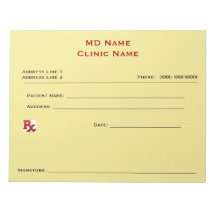





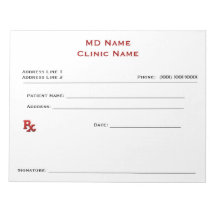
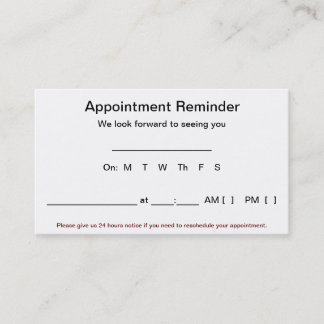
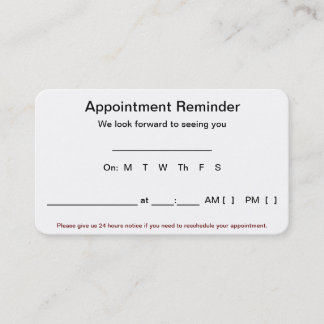

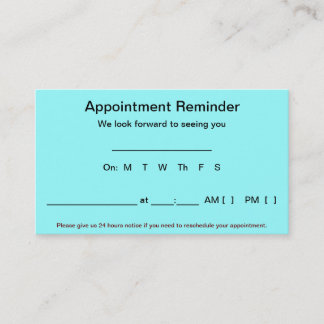
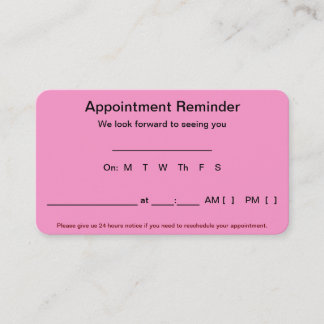
No comments:
Post a Comment